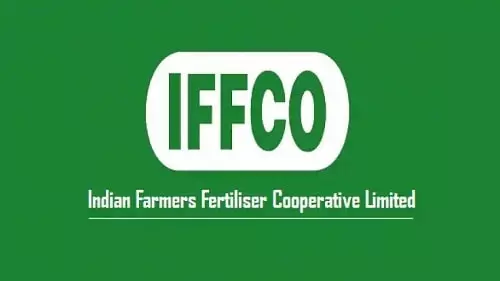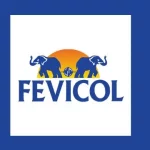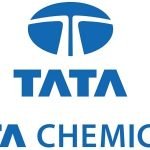Top 10 Best Cattle Feed Companies In India
As many as 2 crore Indians rely on the cattle feeding sector to provide for them and the industry is estimated to be worth over Rs. 1, 87,000 crores. As a percentage of the overall animal feed industry, the poultry feed sector has had a near-monopoly for some time now, at over 44% worldwide. Interestingly, the slowest growing of these three markets is aqua feed, which has been experiencing explosive expansion in recent years.
In India, cattle feed is a lucrative industry. An incredible variety of bovine species can be found in India. A solid financial commitment is all that’s required to reap substantial returns in this industry. In addition, the industry features a healthy amount of rivalry. As a result, you need to have plenty of persistence while you build your company.
Animals like cows and buffalo do well when fed roughages. Legumes, grass, & straw are all examples of roughages. Sugar cane tops Oil-seed cakes, etc., are also suitable for their diet.
A cow may consume a lot of grass in a short length of time. You shouldn’t let them overgraze, though. In the event that animals suffer from a nutritional shortage, a wide variety of manufacturers offer supplemental feed.
List of Top Cattle Feed Companies In India
India is home to a plethora of major & medium size cattle feed businesses, however the following is a list of the top 10:
1. IIFCO

IFFCO was founded in 1959 as a government-owned enterprise with the mission of manufacturing and distributing cereals, pulses, & oilseeds. This also serves as a source of animal feed.
When it comes to India’s livestock feed industry, IFFCO is one of the undisputed leader. Production facilities in Madhya Pradesh, Punjab, Tamil Nadu, & Maharashtra generate around 670 tonnes of cattle feed daily.
IFFCO’s yearly production capability for milk & milk products is 5 million tons, making it the largest provider of milk & dairy items in India. Even more impressive is the fact that it boasts the world’s highest liquid milk production capacities.
2. Suguna Foods Pvt. Ltd.
When it comes to animal feed, poultry feed, and fish feeds in India, Suguna are the name to trust. Since its founding in 1957, when it began producing poultry feed, the business has been publicly traded on the (BSE).
The company has over 70 feed mills across India, with a production capacity of 3 million metric tons of feed per year. Now Suguna is India’s number two chicken feed producer (tpa). It is headquartered in Chennai and has further offices in Cochin, Coimbatore & also Hyderabad.
3. The Godrej Agrovet
A division called Godrej Industries Ltd., one of India’s major private sector conglomerates; Godrej Agrovet Limited produces a wide range of high-quality products. Some of the company’s divisions produce and sell feed for livestock and poultry. Godrej Nature’s Basket, a wholly-owned business, provides farmers with contract agricultural services (GNB). Godrej Agrovet was founded in 1985 as a joint venture between Godrej Industries and the French company Soufflet. It has a production capacity of over 5 million metric tons of feed per year, and its products are sold in over 50 countries.
Products such as concentrated liquid feed to be used for ruminants & poultry, cow dung wet cakes, cattle slurry cakes, cattle dung dried cakes, cattle fodder pellets, straw pellets and straws, water drinking tube for cattle and bottles, etc. are listed. These products are sold under names like Cadila Feed, Green Field Chicken Feed, Green Field Cattle Feed, GNB Farms, etc.
4. Kamdhenu Limited
Kamdhenu Ltd, a division of Agro Tech Foods Group, is a major player in the Indian dairy industry. Established in 1975, the firm’s parent company began life in 1965 when it purchased a factory in the Hoshangabad area of Rajasthan. The factory had originally been founded by three brothers.
From its humble beginnings, Kamdhenu has grown to be one of India’s leading milk producers and distributors. Curd, ghee, buttermilk, yoghurt drinks (lassi), condensed milk, processed cheese spreads, and more are all part of their product line.
5. Bharat Industries
In 1993, Bharat Industries was founded in Ghaziabad, Uttar Pradesh, as a solo proprietorship. We are one of the leading producers of a wide variety of high-quality Cattle Feed Products such as Milk Feed Premix, Milk Feed Super Pellet, Dairy Feed Super Mesh, Milk Feed Dudharu, as well as other products As a result of their unparalleled quality and innovative design, our products consistently receive high praise from customers and experts alike.
6. Vishal exports Limited
On the international market, Vishal Exports Limited. Is a leading manufacturer and exporter of dairy goods, edible oils, and animal feeds. In 1984, the business officially opened for business.
Cow milk, buffalo milk, and their derivative products like ghee, buttermilk, butter oil, as well as other dairy products are Vishal Exports Ltd.’s bread and butter. The company also produces edible oils like groundnut oil, the mustard seed oil, and sunflower seed oil, and cattle feed like cornflakes and compound feed of molasses centered on maize as well as wheat under the VELCO® brand.
7. Venkateshwara Hatcheries
The headquarters are Hosur, Tamil Nadu, of Venkateswara Hatcheries Private. Ltd. (Venky”s) which is a prominent Indian poultry firm. With a 23% market share, it is by far India’s most important chicken producer. On 15 June 1971, in Maduranthakam, near Chennai, Tamil Nadu, S P Shastri with his children Venkateshwara Rao & Shivraj Rao founded the company. Several other hatcheries opened across the country after the first one opened in the Palarivattom region of Ernakulam in Kerala in 1978.
8. Pranav agro
Pranav Agro Industries Ltd. is an industry-leading producer and provider of food grading items and additives. The firm is headquartered in India and also has factories in other countries; it also has a robust distribution network in India, with over large number of distributors. PAIL also sells to over 50 nations worldwide, such as South Africa, the United Kingdom, Italy, Spain, France, the United Arab Emirates, and others.
Products of the Company include vegetable oil, sunflower oil, palm olein, soybean oil, mixed oil of vegetables comprising groundnut oil, the edible fatty acid such as esterified stearin acid and hydrogenated, etc.; edible waxes like carnauba waxes, glycerol monostearate which is used for chocolate coatings, etc.; lecit
9. Cargill India
The Cargill Corporation has a wholly owned subsidiary in India called Cargill India, which ranks among the top 10 companies in the country that feed cattle. To supply its customers in China, Japan, and South Korea, the company buys wheat as well as other grains from Canada, Australia, and Brazil. It also exports some of its imported corn to Vietnam to be used in production of animal feed and sells it to food producers like Nestle and Unilever.
Cargill India Limited operates through three major subsidiaries: Cargill International Trading Pte Ltd. in Singapore, which trades commodities like rice, barley, and soybeans around the world; Hindustan Agro Industries Limited (HAIL) in India; and Overseas Infrastructure Alliance Ltd (OIA) in the United Kingdom, which operates infrastructure projects overseas (OIAL). With more than 50,000 people across the globe, it is one of the major agribusinesses in India.
10. Vaster Life Science
For successful poultry farming, it is essential that all types of poultry birds, including broilers, layers, and breeders, receive a complete spectrum of nutrients within the feed. The chickens have access to a wide range of feed ingredients, and their dietary needs are well established.
Cereal grains such as maize, wheat, barley, etc. are the primary components of chicken feed. The feed is fortified with essential nutrients like calcium, iron, and potassium as well as trace minerals, vitamins, and microminerals by this company
Feed presentation, microbial activity, amount of antinutritional substances, digestibility, or gut and intestinal health are just few of the many aspects that affect the quality and nutritional value of the feed which this company considers. These problems are remedied by the use of a number of chicken feed supplements and additives by them.
To maximize the productivity of the poultry flock in terms of egg production, disease resistance, and overall feed efficiency, it is common practice followed by them to enhance the poultry feed.
Antimicrobials, emulsifiers, antioxidants, toxin binders, & chicken feed enzymes are just some of the common feed additives and supplements used in poultry production.
The purpose of employing these supplements or additions is to increase the nutritious value of the final product for human consumption, and this is best achieved by using all-natural compounds that may be placed directly into fowl muscle and egg whites.
Conclusion
This list is intended to assist in locating the best ten cattle feeding businesses in India. All of these brands are well-known & respected, with a solid history of providing customers with high-quality goods at reasonable costs. Visit their official website or call them at the official numbers if you’d like any additional details about these cattle feed companies.
How to Select the Best Cattle Feed
Now’s the time to finally look at things you should consider in order to end up buying the best cattle feed for your cows. Well, let’s get down to it then, shall we?
- Understanding Your Cattle’s Nutritional Needs
See, just like how kids and grown-ups eat differently, baby cows (we call them calves) munch on different stuff compared to the older ones. And get this: the cows that give us our yummy milk don’t eat the same food as the ones we raise for meat. On top of that, if a cow is going to have a baby or is already making milk, she’s going to need some extra special snacks to keep both her and the little one healthy.
- Nutrient Content
Also, when picking food for your cows, it’s good to know what’s inside. Proteins are like the building blocks; they help in growing muscles and producing milk. Carbohydrates, found in things like grains, give them energy. Then, there are these tiny things called vitamins and minerals that make sure everything inside the cow is running smoothly. And fats? They’re like energy packets, but just a pinch does the trick!
- Feed Ingredients Matter
So, some grasses like alfalfa aren’t just cow favorites but are also great for their tummies. Energy-packed grains like corn or barley are total winners! And sometimes, if the usual menu isn’t filling enough, we can toss in protein power-ups like soybean meals. Oh, and bonus points for other tasty and budget-friendly treats like beet pulp.
- Feed’s Physical Form
See, how the food looks can change how much the cow enjoys it and benefits from it. Pelleted food is neat and clean but might be a bit pricey. On the other hand, mixed feeds, with a combo of processed and whole grains, are like a tasty buffet that many cows love.
- Feed Additives
Well, sometimes, giving just the basic food isn’t enough. We can mix in some special stuff to help cows grow better and faster. For example, there are things like ionophores that help them put on weight. However, it is super important to know the latest rules and what’s okay to use.
- Palatability
Well, yeah, you might find this funny, but cows have favorite flavors too! If they don’t like the taste of their food, they might not eat enough. And if they don’t eat enough, they won’t get all the good stuff they need to stay healthy.
- Evaluating Cost-effectiveness
Everyone has to watch their budget, right? The same goes for farmers. When buying food for cows, it’s not always about getting the priciest option. Sometimes, cheaper food might just be as good or even better. It’s all about balancing cost and quality.
- Storage
Think about when you leave cookies out, and they get stale. The same thing can happen with cow food. If you don’t store it correctly, it can go bad and lose the good stuff. So, always keep it in a cool and dry place, and maybe think about using containers that bugs can’t get into.
- Seek Expert Advice
Even if you read a lot and think you know best, it’s always smart to chat with an expert. Maybe talk to someone who knows a lot about cow food or a vet. They can give you special tips to make sure your cows are eating the best food out there.
Cattle Feed Company FAQs
Q: What is a cattle feed company?
A: A cattle feed company is a business that specializes in the production and distribution of animal feed specifically formulated for cattle. These companies create and supply a range of feed products that cater to the nutritional needs of cattle at different stages of growth, such as calves, dairy cows, beef cattle, and breeding stock.
Q: Why is cattle feed important?
A: Cattle feed plays a crucial role in ensuring the health, growth, and productivity of cattle. It provides essential nutrients, vitamins, minerals, and energy sources that may not be adequately obtained from grazing or forage alone. Balanced and nutritionally rich feed formulations help optimize cattle’s growth, milk production (in dairy cows), weight gain (in beef cattle), and overall well-being.
Q: What types of cattle feed do companies offer?
A: Cattle feed companies offer a wide range of feed options to meet the specific nutritional requirements of different cattle categories. Some common types of cattle feed include calf starter feed, grower feed, lactation feed, beef finisher feed, mineral supplements, forage enhancers, and specialized feeds for specific health conditions or production goals.
Q: Are there different formulations for organic or conventional cattle feed?
A: Yes, cattle feed companies often offer formulations for both organic and conventional farming practices. Organic cattle feed is formulated using ingredients that meet specific organic certification standards, which may include using organic grains, forage, and avoiding certain additives or synthetic substances. Conventional cattle feed formulations may include a broader range of ingredients and may incorporate additives for specific purposes, such as growth promotion or disease prevention.
Q: How do I choose the right cattle feed for my herd?
A: Choosing the right cattle feed depends on factors such as the age, breed, production goals, and health status of your herd. Consulting with a veterinarian or animal nutritionist can provide valuable guidance in determining the specific nutritional requirements and recommending suitable feed formulations for your cattle. It is important to consider factors like protein content, energy levels, roughage sources, and mineral supplementation when selecting cattle feed.
Q: Can I customize cattle feed formulations based on my herd’s needs?
A: Some cattle feed companies may offer customization options based on your specific requirements. They may work with you to create custom feed blends or adjust formulations to address any specific nutritional deficiencies or health concerns within your herd. Customized cattle feed can help ensure that your herd’s unique needs are met effectively.
Q: Where can I purchase cattle feed from a reliable company?
A: Cattle feed can be purchased directly from reputable cattle feed companies or through their authorized distributors. You can find them through agricultural supply stores, feed dealers, or online platforms. It is advisable to choose a trusted company with a good reputation, quality assurance, and a focus on animal nutrition to ensure the feed’s safety and effectiveness.
Q: Are there any regulations governing cattle feed production?
A: Yes, cattle feed production is subject to regulations and standards set by regulatory bodies, such as government agricultural departments or food safety agencies. These regulations may include guidelines on ingredient sourcing, labeling requirements, quality control, and safety standards to ensure that cattle feed products meet specific quality and nutritional standards.
Q: How should cattle feed be stored?
A: Cattle feed should be stored in a cool, dry, and well-ventilated area to maintain its quality and prevent spoilage. It should be protected from moisture, pests, and direct sunlight. Feed bags should be properly sealed to avoid exposure to air or humidity. It is recommended to follow the manufacturer’s storage instructions for each specific type of cattle feed.
Q: Can cattle feed expire or go bad?
A: Cattle feed can have a shelf life, and its quality can degrade over time. Feed products should be used within the recommended timeframe mentioned on the packaging to ensure optimal nutrition. Using expired or spoiled feed can lead to decreased nutritional value, palatability issues, and potential health risks to the cattle. Regularly monitoring feed quality and proper storage practices can help prevent spoilage and maintain feed freshness.


